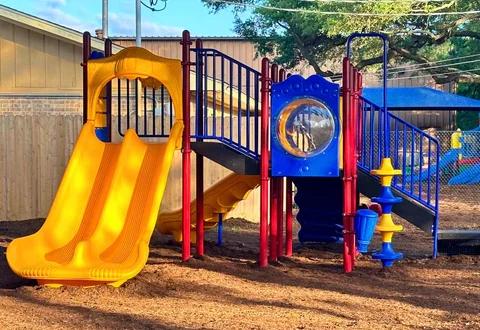Social development is more than making friends. It includes taking turns, understanding feelings, cooperating , and developing empathy. Socially developed children have the skills to form relationships and achieve success in school and life.
Here are ten practical tips to help parents and caregivers develop healthy social skills for young children.
1. Show Kindness and Respect
Adults teach children by example. Even in conflict, be polite, calm and respectful.
You can say: “Can I help you?”
“Thank you for your patience.”
2. Teach & Practice Sharing
Young children don’t always understand sharing. Gentle language and frequent repetition are key.
Speak:
“You get to have your turn and then the turn of your friend.”
“Let’s start a timer, so that everyone has a chance.”
3. Encourage Listening Skills
Play games such as “Freeze Dance” or “Simon Says,” and model listening skills for children.
Tip: When talking, get on their level to communicate more effectively.
4. Praise Positive Social Behavior
Praise children for being helpful, kind or patient.
Say
“You waited for your turn so nicely — that was very nice.”
“I saw you helping your friend when they felt sad.” It’s the thing that good friends do.”
5. Group Play Opportunities
Children learn to cooperate, compromise and be emotionally aware when they play in small groups. Group play helps children learn emotional awareness, cooperation, and compromise.
Try:
- Building a tower with your friends
- Group art projects
- Play pretend in pairs or teams
6. Use stories and puppets to teach social lessons
Books and puppets can be great tools to teach empathy and solve problems.
Try these books:
- “Have you filled a bucket today?” By Carol McCloud
- “Hands are not for hitting” by Martine Agassi
7. Helping to resolve conflicts without blaming
Teach your children how to solve problems with words and not punishment or blame.
Speak:
“Let’s fix this together.”
“What can we do if it happens again?”
8. Teach Emotional Words
Encourage children to name their emotions so that they can express them clearly.
Try:
- I can tell you’re upset. What happened?
- You look very happy! “Want to tell me why?”
Visual emotion charts can be used to provide extra support.
9. Set clear expectations for behaviour
When children know what to expect, they will behave better. Repeat specific details often.
Example rules:
- “We use gentle hands.”
- “We speak kindly with our friends.”
10. Every child is unique
Others are shy and need more time. Respect their pace and support them gently without forcing interaction.
Tip: Begin with individual playdates before moving on to groups.
Final Thoughts
Just like learning how to walk or speak, social skills require practice. Children can develop social skills with encouragement, patience and real-life examples.





